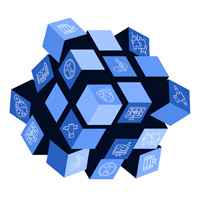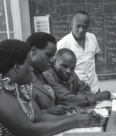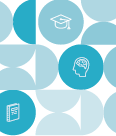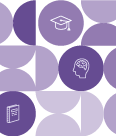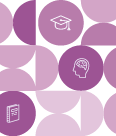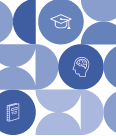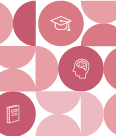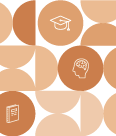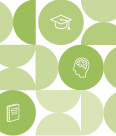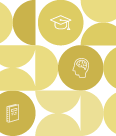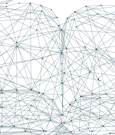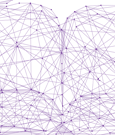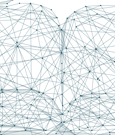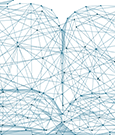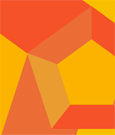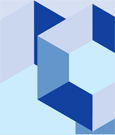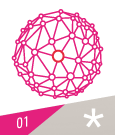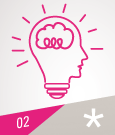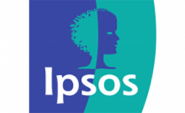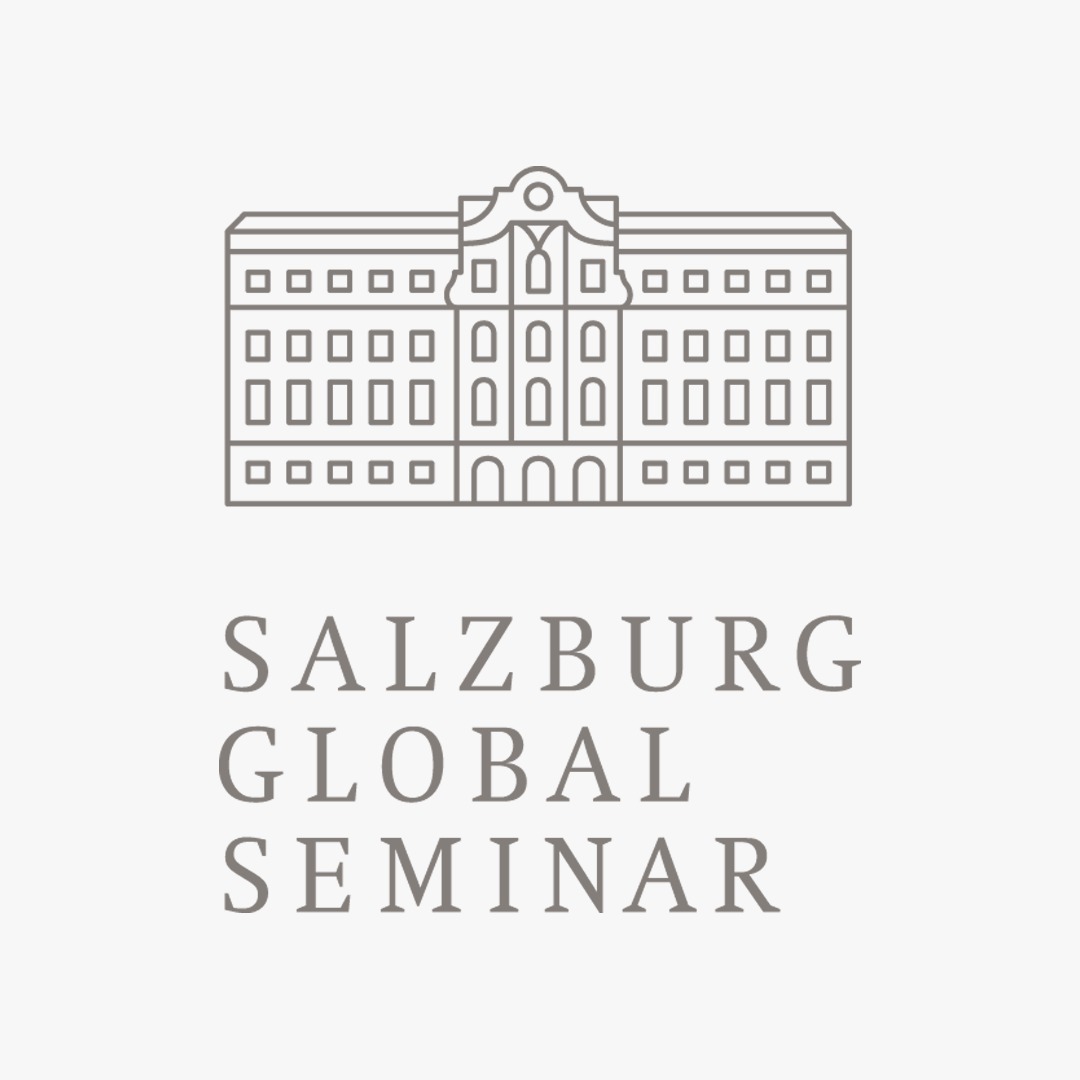All education actors have a role to play in hastening the spread of effective practices and accelerating progress toward the vision of The Learning Generation and the objectives of SDG 4. This report provides insights and tools to help both funders and practitioners advance knowledge sharing across borders.
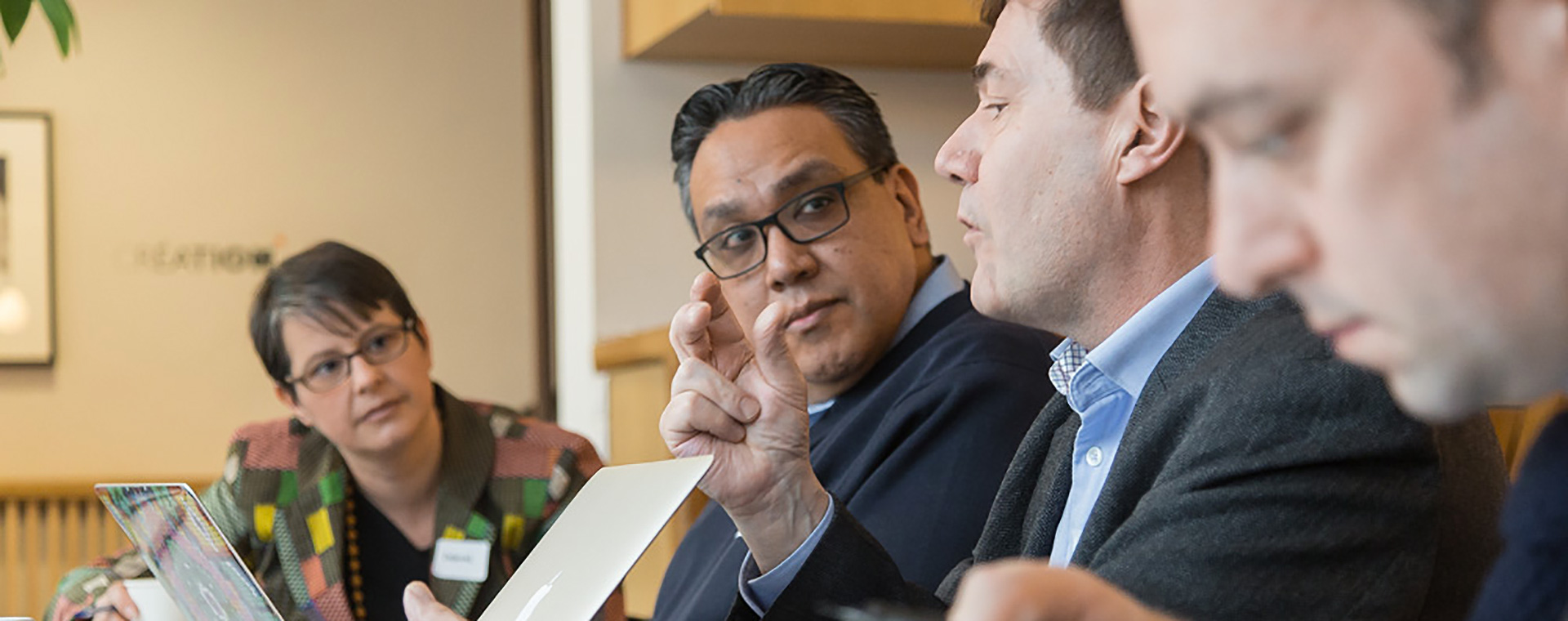
Research Series
The WISE Research Reports, produced in collaboration with recognized experts from around the world, address pressing global education issues and reflect the priorities of the Qatar National Research Strategy. These timely, comprehensive reports feature action-oriented recommendations and policy guidance for all education stakeholders, offering concrete, improved practices in specific contexts.
2023 Research Series
Gain insights into the urgent need for school leader development programs and the value of public-private partnerships. Learn how investing in leadership development can enhance educational recovery strategies and drive positive change in the post-pandemic era.
In this extensive report, we present findings from two interrelated research studies that focused explicitly on exploring the relationship between teacher and student well-being in learning and teaching — a topic for which many questions remain.
A discussion paper by Rosie Clayton & Atif Shafique.
A report by Dr. Seungah S. Lee and Victoria Basma.
2021 Research Series
Global education has been uniquely impacted by the pandemic, including in the way that our youth experience learning. The emerging research ecosystem is marked by an accelerated move to digital platforms and new ways of learning. It has enriched our understanding of shifting learning structures and the actions required to drive education development at every level.
This series of timely and comprehensive research reports feature action-oriented recommendations and policy guidance for stakeholders across the education industry and beyond. More to be released in the coming weeks.
by Asmaa Al-Fadala, Julia Kirby, Omar Zaki, Ahmed Baghdady, Dominic Regester – Salzburg Global Seminar, Diplomatic Courier
The E-Book offers an opportunity to a global audience to make sense of what happened but it also offers a breeding ground of ideas from some of the world’s top education thinkers.
by Asmaa Al-Fadala, Donvan Amenya, Rachael Fitzpatrick, Katie Godwin, Julia Kirby, Astrid Korin – The Education Commission, Education Development Trust, REB
The research used an innovative ‘learning partnership’ approach with Rwandan education stakeholders engaged as a critical ‘co-creation’ partner in each phase of the process – from designing the research questions to intrepreting the findings.
by Jennifer S. Groff, Asmaa Al-Fadala, Julia Kirby, Omar Zaki, Maryam Al-Khalaf – Learning Futures Global
The report addresses the challenge of changing education and provides valuable practical insight into the practices and policies that can support and enhance the impact of providing innovation labs in schools.
by Shelby Cosner, Sam Whalen, Meagan Richard, Martha Hebert – Center for Urban Education Leadership University of Illinois, Chicago
In this report, the authors unpack their research into mature non- system intermediary organizations and their important role as an educational ecosystem builder.
by Rae Jean Proeschold-Bell, Malik Muhammad Sohail, Hy Huynh, Ahmed Baghdady, Vanroth Vann, Cyrilla Amanya, Maryam Al-Khalaf, Kathryn Whetten – Duke University, The WellBeing Project
This report covers two large endeavors. The first endeavor was a scoping literature review of 102 journal articles worldwide on teacher wellbeing for five-year. The second was a set of case studies with 90 teachers and 16 principals in high-performing schools in Cambodia, Kenya, and Qatar.
by Rosie Clayton, Aurelio Amaral, Atif Shafique – WISE Learning Ecosystems
The research aims to better understand the potential of the learning ecosystems concept in Qatar. The study was conducted through a participatory action research approach, encompassing surveys, interviews and co- designed workshops with stakeholders, including learners.
by Nidhi Singal, Shruti Taneja-Johansson, Asmaa Al-Fadala, Ameiro Tadesse Mergia, Niraj Poudyal,Omar Zaki, Ali Sani Side, Dipesh Khadka, Samah Al Sabbagh – University of Cambridge
This research focuses on understanding the impact of COVID-19 on the education of children with disabilities and to suggest possible strategies to sustain their participation in education.
by Sana Al-Harahsheh, Raian Ali, Fatima Al Motawaa, Aisha Sultan, Azza Abdelmoneium, Ahmed Baghdady, Maryam Al-Khalaf, Feras Al-Meer – DIFI, WISH, HBKU
The report provides findings from the first phase of a study of how adolescents’ excessive use of digital technology in Qatar affects their health, education and family relationships.
by Sarojani S. Mohammed – Ed Research Works
This report set out to explore why project- based learning is implemented at such low rates overall, and whether the challenges and barriers to its implementation are different in resource-scarce settings across the globe as compared to settings in which resources are more readily available to schools.
by Seungah S. Lee, Victoria Basma – Stanford University, WISE
The objective of this report is to share the WISE journey toward building a cohesive ecosystem where educators and entrepreneurs can work together toward shared goals of learning innovation and design.
2019 Research Series
Through the years, WISE Research has become a platform for original research on the 21st century’s most pressing education challenges. In collaboration with our vast global network of scholars, thought leaders, and practitioners, the Research Report series is produced to encourage active discussion and debate about the most timely topics in the field, bridging the gap between theory, policy and practice.
For 2019, the Research Report series delves into a wide range of important topics – including educational leadership, learning ecosystems, education of athletes, and language policy – all with practical implications for practitioners and policy-makers alike. These reports will be launched at the 2019 WISE Summit in Doha, where the authors will present their research findings to the Summit delegates. The reports will be available on the WISE website, and a limited number of printed editions will be availabile in English at the Summit itself. Selected reports will also be translated into Arabic and made available on the WISE website.
by Valerie Hannon, Louise Thomas, Sarah Ward, Tom Beresford – Innovation Unit
The report explores the potential of learning ecosystems: first through a rapid review of recent writing by leading authors, and next, through nine case studies of initiatives at various stages of maturity.
by B. David Ridpath, Peter Smolianov, Spencer Harris, Gerard Akindes, Wadih Ishac – Ohio University
The report explores elite sport development systems and aspects of educational attainment and opportunities for elite athletes in a variety of national sport development systems.
by Dudley Reynolds – Carnegie Mellon University
The report urges educators to raise awareness about how languages are actually used in societies. The report invites us to embrace the various ‘ways of knowing’ across languages broadly, the unique benefits each language brings to the multilingual education space.
by Rajika Bhandari – Institute of International Education (IEE)
This research from our colleagues at the Institute of International Education (IIE), a long-time partner with WISE and Qatar Foundation, is a full portrait of the current state of global higher education for mobile students.
by Wing Yi Chan, Jennifer Sloan, Anita Chandra – RAND Corporation (co-funded by WISH)
The report contributes to a broadening field of inquiry that is dissolving the ‘silo’ separation of education and health fields, encourages all stakeholders to collaborate, and allows new voices in holistic approaches that offer improved academic achievement to be heard.
by James Spillane, Richard Paquin Morel, Asmaa Al-Fadala – Northwestern University
The report describes and advocates for a model of multi-level distributed leadership in education that integrates diverse sources across education sectors as a tool for improved teaching and supporting equal opportunity.
by Oakleigh Welply, Abderrahim Taamouti, Gabriel Bracons Font – Durham University
The research examines education policies, curricula, and scholarly work on global citizenship education internationally to map the discourse worldwide.
by Matthew Hartley, Alan Ruby, Ahmed Baghdady– University of Pennsylvania
This report attempts to provide an understanding of how some universities, which do not appear among the top ranked institutions, pursue and achieve excellence in their local contexts and serve their local and regional communities.
by Ahmed Baghdady, Omar Zaki – WISE
This report serves as background paper for a comprehensive report led by the MasterCard Foundation. The research complements recent WISE research in other non-western regions where increasing scrutiny on relevance and purpose drives the conversation and the action among education leaders.
2017 Research Series
The 2017 WISE Research Report series addresses a range of topics including school leadership and collaborative professionalism, design thinking, apprenticeship, disability, early childhood education, and migration, among others.
As a resource for the latest thinking, the WISE Reports encourage discussion at the 2017 global WISE summit and spark further research. The Reports are available on the WISE website. A limited number of printed editions in English were available at WISE 2017, 14-16 November. Selected reports were also available in Arabic editions.
by Annette Diefenthaler, Sandy Speicher, Laura Moorhead, Deirdre Cerminaro, Charla Bear – IDEO
The report examines how design thinking is used to fundamentally reimagine school models and systems, support change in school culture by transforming how educators work together, and support students to develop twenty-first century skills.
by Natasha Ridge, Susan Kippels, Brian Jaewon Chung – Sheikh Saud bin Saqr Al Qasimi Foundation for Policy Research
The report examines the unique challenges that affect the educational performance of boys across the globe, with a focus on Qatar, the UAE, the UK, Trinidad & Tobago, the Dominican Republic, and the United States.
by Samir Ranjan Nath, Denise Ferris, Mohammed Mahbubul Kabir, Tanjeeba Chowdhury, Anwar Hossain – BRAC
The report explores the contexts and reasons for secondary education transition and dropout in Bangladesh and Uganda.
by Michael Barber
The report offers guidance for policymakers and education ministries implementing reform for improved student outcomes, based on the wide experience of the author.
by Julia Freeland Fisher, Katrina Bushko, Jenny White – Clayton Christensen Institute
The report explores blended learning programs and analyzes the experiences of sample schools in Brazil, Malaysia, and South Africa in using online learning to deliver content in more flexible and effective ways.
by Nidhi Singal, Hannah Ware, Shweta Khanna Bhutani – University of Cambridge
The report explores the ‘Three Rs’ model (Rights, Resources and Research) as a practical framework for advancing inclusive quality education for persons with disabilities.
by Simon Breakspear, Amelia Peterson, Asmaa Alfadala, Muhammad Salman Bin Mohamed Khair – LearnLabs / WISE
The report describes a dynamic process for developing ‘leadership for learning’ capabilities among school leaders and teachers for continual student improvement.
by Karen Guldberg, Elaine Ashbee, Lila Kossyvaki, Ryan Bradley, Abdullah Basulayyim – University of Birmingham
The report examines Qatar’s progress in implementing its education plan for people with autism, considers challenges and opportunities, and suggests recommendations for improvement.
by Maia Chankseliani, Ewart Keep, Stephanie Wilde – University of Oxford
The report is a comparative study of apprenticeship systems in eight diverse countries, examining incentives and disincentives for learners and employers to participate in them, and considering policies that could support greater collaboration with government.
by Samira Nikaein Towfighian, Lindsay Adams – World Bank
The report describes early childhood development policies, programs and outcomes in Qatar, identifies gaps and proposes policy options for strengthening ECD in the country.
by J. Han, J. E. Delgado, R. Cheung Judge, C. Nordberg, P. Robru, X. Qi, B. Torut, Huynh Thi Ngoc Tuyet, W. Tang, H. Uemura, X. Xiang – 21st Century Education Research Institute
The report describes the varied contexts and circumstances of migrant children in seven countries, examining rights and successful initiatives, and making policy recommendations.
by Andy Hargreaves, Michael T. O’Connor – Boston College
The report builds a case for collaborative professionalism as a crucial framework for building strong and effective teaching and learning, drawing on the experiences of several diverse communities globally, and making observations on what works and what doesn’t.
by Karen Edge, Eugene Dapper, Corrie Stone-Johnson, Keren Frayman, Reinier Terwindt, James Townsend, Sharath Jeevan – UCL Institute of Education / STIR Education
The report explores how various jurisdictions, at different levels of education systems, work to support teacher motivation for effective practice and student outcome.
2015 Research Series
The WISE Research Reports bring key topics to the forefront of the global education debate, and reflect the priorities of the Qatar National Research Strategy.
In collaboration with recognized experts, researchers and thought-leaders, WISE has produced timely, comprehensive reports featuring concrete, improved practices from around the world, as well as recommendations for policy-makers, educators and change-makers. The WISE Research Reports focus on system-level innovation, teacher education, early-childhood education, new ways of financing education, entrepreneurship education, wellbeing, twenty-first century skills, and managing education reform in the Gulf Corporation Council countries.
by Mr. Ashwin Assomull, Ms Maryanna Abdo, Ms Roisin Pelley
This report explores the ways that private capital is deployed to finance education by highlighting case studies of high-growth organizations in various education sectors.
by Dr. Patricia G. Greene, Dr. Candida G. Brush, Dr. Elaine J. Eisenman, Dr. Heidi Neck, Mr. Sam Perkins
This report identifies the current state of entrepreneurship education and training around the world, and establishes an inventory of best practices.
by Mr. Joe Hallgarten, Ms Valerie Hannon, Mr. Tom Beresford
This report aims to support system leaders in defining the potential benefits and the key drivers of system innovation in public services, as well as to identify the conditions that promote and inhibit it.
by Prof. Oon Seng Tan
The report identifies ten key aspects of teacher policies the world over, and explores effective, successful examples that characterize these features.
by Dr. David Whitebread, Dr. Martina Kuvalja, Dr. Aileen O’Connor
This report explores the key international developments in early childhood education, including the main principles for provision, pedagogy and curriculum.
by Prof. Marwan Awartani, Ms Janet Looney
This report examines how to define, measure and foster learning for well-being in schools and through policies. It analyses six case studies of positive practices from different regions.
by Dr. Asmaa Alfadala
The report identifies and compares the development of the education reform initiatives put in place in selected countries of the GCC countries, with particular focus on Qatar, The United Arab Emirates and the Kingdom of Saudi Arabia.
by Prof. Jian Liu
Through a literature review of more than 15 countries over the past ten years, the report aims to understand how twenty-first century skills have been implemented, and to describe the current state.
2014 Research Series
Both first editions address the theme of creativity and bring complementary perspectives and insights toward defining creativity, analyzing its functions, and harnessing it to stimulate more engaged learning and problem-solving.
by Charles Leadbeater
Drawing on some of the most innovative organizations in the world, the author builds a case for schools as a place where children go to explore, create, make and learn together in a creative community with a cause. School should be the place where learners can discover their passions and purpose –and inspire their active and collaborative, problem-solving learning.
by Helen Abadzi, Marialuisa Martelli and Silvia Primativo
In this comprehensive and accessible review, multiple strands of research are woven together revealing intriguing mechanisms and linkages in the creative process. The work dramatizes the powerful implications of creativity for learning, and suggests how we may benefit from these insights at any age.
ALL-IN
The Agile Leaders of Learning Innovation Network (ALL-IN) is targeted at policymakers, leadership development providers, academics and other relevant experts interested in co-designing sustainable school leadership development programs.
ALL-IN draws all of them together to share innovative approaches and accelerate the design of new high-quality, high-scale models. ALL-IN aims to:
- Curate discussions with school leadership development providers by creating a community of practice
- Develop ways of thinking about evaluating and learning the impact of leadership development and principal support initiatives
- Serve as a springboard for research that captures and designs coherent school leadership policies and high-impact practices in the network and beyond
- Positively impact student achievement and well-being outcomes through innovative and effective school leadership approaches
February 20, 2019: WISE@Paris
WISE held the third working session for the Agile Leaders of Learning Innovation Network (ALL-IN) in Paris on February 20, 2019. The ALL-IN workshop in Paris was the largest gathering, with 42 people mainly comprising of leaders of school associations, leadership program providers, researchers and policy makers from 14 countries. The meeting included high profiles in the field such as Beatriz Pont, Senior Policy Analyst in the OECD Directorate for Education and Skills. Darleen V. Opfer, Vice President and Director of RAND Education, whom shared a recent school leadership intervention evaluation toolkit by RAND. As well as Anthony Mackay, CEO of the National Centre on Education and the Economy, and members of the International Education Leadership Centres Network.
As with the Accra and New York workshops, the meeting in Paris provided an opportunity for participants to share their insights, exchange knowledge and to network. The ALL-IN meeting was facilitated by Dr. Asmaa Al-Fadala, Director of Research at WISE and Dr. Simon Breakspear, CEO of Learn Labs Global. The Paris meeting consisted of four agendas:
- State of the field: Cross Country Learning
- Innovative Case Studies of Leadership Development
- Progressing the Agenda: Collaborative Working Groups
- Case Study Group Meeting
The ‘Innovative Case Studies of Leadership Development’ session included insightful presentations from academics and program providers in Australia, Canada, Hong Kong and Singapore. The last session of the meeting was the case study group meeting, this gave an opportunity for five researchers to coordinate with five leadership program providers whom were paired prior to the meeting. The researchers will conduct fieldwork by studying the programs, see what works and how others can learn from the successes of these programs. The Paris meeting allowed for the researchers to take suggestions from participants on what to consider and identify when studying the leadership programs. The five reports will be presented and discussed further at WISE 2019.
September 22, 2018: WISE@ NY
WISE held the second working session for the Agile Leaders of Learning Innovation Network (ALL-IN) in New York City on September 22, 2018. The ALL-IN workshop gathered 25 people from five continents, comprising of academics, experts, school association leaders and program providers who specialize in school leadership development.
The workshop provided an opportunity for the participants to share their unique experiences, exchange knowledge about their programs and discuss ways to address current challenges through innovative policies and practices to empower successful school leadership.
Some of the key takeaways of the New York session:
- The need to understand multiple perspectives of school leadership and explore best practices taking place around the world.
- Develop a better definition of leadership and consider competencies or standards for leadership quality.
- The need for a knowledge base of updated research on school leadership and making this accessible to a wide audience. Alternatively, an interactive reference of leadership models, examples and solutions.
- The importance of measuring impact and gaining data to develop a strong evidence base for effective policy implementation and change, particularly at the school and district level.
May 2018: WISE@ Accra
The ALL-IN Working Session aims to gather school leadership development organizations and school leader associations, especially from African countries, who are creating sustainable school leadership development programs in support of their school leaders.
Participants were able to share their key building blocks of leadership development, innovative practices, impact and current challenges. Through spirals of inquiry, they had the opportunity to evaluate their programs and co-design solutions, features and improved high-quality, high-scale models.
For more information please contact us at research@wise.org.qa
November 2019: WISE 2019
The fourth ALL-IN meeting in Doha had over 35 participants, many of them previous participants, as well as education experts and school leaders local to Qatar. The program discussed the vision for WISE in the area of school leadership development and the state of the school leadership development globally. Participants carried out two design challenges, the first was how to scale with quality and the second was how to better formulate and evaluate the impact of leadership programs on knowledge, skills and dispositions. The meeting concluded with a discussion on a blueprint for ALL-IN in 2020 it’s mission to build a collective movement.
The meeting concluded with the following next steps:
-
Objectives for the networking:
-
Sharing leadership practices around the network; and
-
Scaling up models and impact evaluations.
-
-
Five cases and the work and observations that have come out of the studies
-
Making connections between each other
-
ICSEI working group in January 2020 in Marrakech
-
WISE@Bogotá and Medellín, 2020; regional networking with Vicky Colbert
-
WISE’s new strategy – Educational Leadership Track is one of the areas of primary focus
ALL-IN Working Sessions
February 20, 2019: WISE@Paris
WISE held the third working session for the Agile Leaders of Learning Innovation Network (ALL-IN) in Paris on February 20, 2019. The ALL-IN workshop in Paris was the largest gathering, with 42 people mainly comprising of leaders of school associations, leadership program providers, researchers and policy makers from 14 countries. The meeting included high profiles in the field such as Beatriz Pont, Senior Policy Analyst in the OECD Directorate for Education and Skills. Darleen V. Opfer, Vice President and Director of RAND Education, whom shared a recent school leadership intervention evaluation toolkit by RAND. As well as Anthony Mackay, CEO of the National Centre on Education and the Economy, and members of the International Education Leadership Centres Network.
As with the Accra and New York workshops, the meeting in Paris provided an opportunity for participants to share their insights, exchange knowledge and to network. The ALL-IN meeting was facilitated by Dr. Asmaa Al-Fadala, Director of Research at WISE and Dr. Simon Breakspear, CEO of Learn Labs Global. The Paris meeting consisted of four agendas:
- State of the field: Cross Country Learning
- Innovative Case Studies of Leadership Development
- Progressing the Agenda: Collaborative Working Groups
- Case Study Group Meeting
The ‘Innovative Case Studies of Leadership Development’ session included insightful presentations from academics and program providers in Australia, Canada, Hong Kong and Singapore. The last session of the meeting was the case study group meeting, this gave an opportunity for five researchers to coordinate with five leadership program providers whom were paired prior to the meeting. The researchers will conduct fieldwork by studying the programs, see what works and how others can learn from the successes of these programs. The Paris meeting allowed for the researchers to take suggestions from participants on what to consider and identify when studying the leadership programs. The five reports will be presented and discussed further at WISE 2019.
September 22, 2018: WISE@ NY
WISE held the second working session for the Agile Leaders of Learning Innovation Network (ALL-IN) in New York City on September 22, 2018. The ALL-IN workshop gathered 25 people from five continents, comprising of academics, experts, school association leaders and program providers who specialize in school leadership development.
The workshop provided an opportunity for the participants to share their unique experiences, exchange knowledge about their programs and discuss ways to address current challenges through innovative policies and practices to empower successful school leadership.
Some of the key takeaways of the New York session:
- The need to understand multiple perspectives of school leadership and explore best practices taking place around the world.
- Develop a better definition of leadership and consider competencies or standards for leadership quality.
- The need for a knowledge base of updated research on school leadership and making this accessible to a wide audience. Alternatively, an interactive reference of leadership models, examples and solutions.
- The importance of measuring impact and gaining data to develop a strong evidence base for effective policy implementation and change, particularly at the school and district level.
May 2018: WISE@ Accra
The ALL-IN Working Session aims to gather school leadership development organizations and school leader associations, especially from African countries, who are creating sustainable school leadership development programs in support of their school leaders.
Participants were able to share their key building blocks of leadership development, innovative practices, impact and current challenges. Through spirals of inquiry, they had the opportunity to evaluate their programs and co-design solutions, features and improved high-quality, high-scale models.
For more information please contact us at research@wise.org.qa
November 2019: WISE 2019
The fourth ALL-IN meeting in Doha had over 35 participants, many of them previous participants, as well as education experts and school leaders local to Qatar. The program discussed the vision for WISE in the area of school leadership development and the state of the school leadership development globally. Participants carried out two design challenges, the first was how to scale with quality and the second was how to better formulate and evaluate the impact of leadership programs on knowledge, skills and dispositions. The meeting concluded with a discussion on a blueprint for ALL-IN in 2020 it’s mission to build a collective movement.
The meeting concluded with the following next steps:
-
Objectives for the networking:
-
Sharing leadership practices around the network; and
-
Scaling up models and impact evaluations.
-
-
Five cases and the work and observations that have come out of the studies
-
Making connections between each other
-
ICSEI working group in January 2020 in Marrakech
-
WISE@Bogotá and Medellín, 2020; regional networking with Vicky Colbert
-
WISE’s new strategy – Educational Leadership Track is one of the areas of primary focus
WISE Global Education Barometer
Youth Perceptions on their Education and their Future
On the occasion of the International Day of Education, WISE has released an extensive study on the views of young people. Conducted by Ipsos, the survey was undertaken in 20 countries across the globe, in order to understand how the youth perceive their education and how prepared and confident they feel in their future. These results have been initially revealed at the “Learning for people, planet, prosperity and peace” conference on January 24, 2020. Key findings will be included in the work conducted by UNESCO’s Futures of Education and CRI’s Learning Planet initiatives.
9,500 people aged 16 to 25 were surveyed in 20 countries across the globe, including in the Middle East (Qatar, Jordan, Lebanon, Turkey), Africa (Morocco, Nigeria, South Africa), Asia (China, India, Malaysia, South Korea), the Americas (Brazil, Canada, Mexico, the United States) and Europe (Finland, France, Germany, the United Kingdom and Russia). In each country, a representative sample (quota method) of the national population aged 16-25 was interviewed online.
Three major trends from the survey stand out:
1. Young people believe their generation has a responsibility to better the planet, yet only half feel ready to better the world around them. They don’t necessary expect schools to make them more active and well-rounded citizens, but rather to be ready for the future on a personal level.
2. Young people value education and express an overall satisfaction with the education they’ve received. They trust the educational system and their teachers in their ability
to provide them with useful skills and knowledge. However, they also expect more diversity in their learning experiences and they would like schooling to give more space to new technologies and creativity, curiosity or collaboration.
3. A major area for improvement in schools, according to the youth, is the need for equal opportunities for all, especially between boys and girls.
Conducted by
Special Edition E-Book: Education Disrupted, Education Reimagined
Responses from education’s frontline during the COVID-19 pandemic and beyond
Written over the course of the first five months of the COVID-19 pandemic, WISE’s Special Edition E-Book, Education Disrupted, Education Reimagined: Thoughts and Responses from Education’s Frontline During the COVID-19 Pandemic and Beyond tells the education story during the COVID-19 crisis in real time, through a collection of over 40 articles and essays written by key stakeholders on education’s frontline during the crisis, including from schools, NGOs, governments, and international organizations.
Surveys
WISE-JobTeaser Survey: “Preparing the New Generation for the Future of Work”
On the occasion of WISE@Paris taking place on February 20-21, 2019, the World Innovation Summit for Education (WISE) and its partner JobTeaser, the European leader in career guidance and the recruitment of young talent, have asked Ipsos to conduct an extensive survey that dives into the prospects of the European youth, employers and educators regarding the future of work and learning.
This survey, titled “Preparing the New Generation for the Future of Work”, highlights the paradoxical views of the European youth who, while they feel optimistic about the future of work, also think that they are not well prepared to it by their national education systems. Find out more about the expectations of the youth regarding their job-readiness and the future of work here:


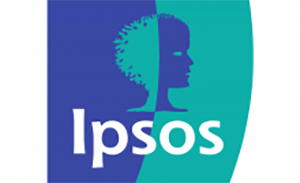
WISE-Gallup Survey: “Connecting Education to the Real World”
The 2015 WISE Education Survey: Connecting education to the real world, focuses on how well education systems around the world are preparing students for work and what can be done to support this vital task.
It represents the views of the WISE global community of education experts – teachers, students, recent graduates, policy makers, non-profit workers and members of the private sector – who connect with WISE on education reform issues.
Gallup conducted the survey online from August 6-31, 2015, completed by 1,550 WISE education experts representing 149 countries in nine major global regions. While the data are not projectable to any larger population, the results provide valuable insights from this globally and professionally diverse group of experts into how the education systems in their countries are performing in a variety of ways.

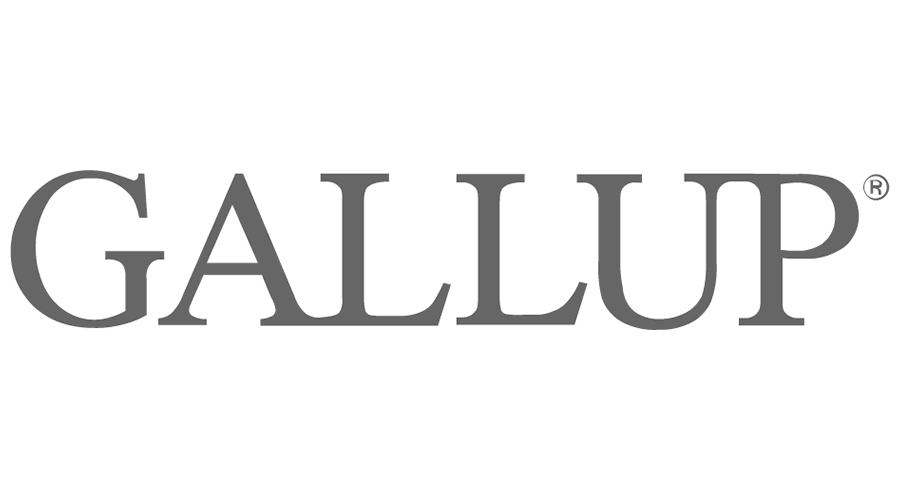
WISE Survey: “School in 2030“
Are teachers obsolete? Will online content make traditional brick-and-mortar schools a thing of the past? Will there be one global education language? Should school focus on personal skills rather than academic knowledge? Will company certification be on a par with diplomas? These are some of the issues tackled by the 2014 WISE Survey: School in 2030.
The “2030 School Survey” was conducted between June 3 and 30, 2014, among 645 participants representative of the global WISE community, which comprises more than 15,000 individuals.
Five prominent voices have commented on the results and shared their insights on the school of the future: Professor Noam Chomsky, Ms Julia Gillard, Professor Sugata Mitra, Mr. John B. Mahaffie and Dr. Yasar Jarrar.
Other publications
WISE Policy Brief - Early Childhood Education in Qatar: A Snapshot
The policy brief presents the outcome of the October, 2016 WISE Early Childhood Education Forum in Doha, attended by some 150 local teachers and education leaders. This gathering was facilitated by Prof. David Whitebread of the University of Cambridge, lead author of the WISE Report, “Quality in Early Childhood Education: an International Review and Guide for Policy Makers,” published in partnership with Cambridge University.
The WISE Report provides the foundation for the new policy brief. The policy brief highlights nine specific, practical recommendations to support effective ECE provision in Qatar.
WISE has collaborated with the Ministry of Education and Higher Education, Qatar Academy, Qatar University, and with the Cambridge University team toward achieving these goals and recommendations for Qatar’s schools –and for its youngest students.
SDG 4: Investing in Knowledge Sharing to Advance SDG 4
“A new paradigm in global development is needed to sustain the progress of the last generation,” explains Larry Summers in the Foreword of this report. For global education, a key element of this new paradigm is improved knowledge sharing across borders.
In 2016, The Learning Generation report called for the international community to invest in a global education ecosystem that could “promote cross-border learning and sharing of innovations and grow the capacity of leaders and practitioners across sectors.” This report supports that call by advancing a more robust vision for effective global knowledge sharing based on 16 months of research, interviews, and consultations with more than 200 education stakeholders.
The report argues that in order to accelerate progress towards SDG 4, global, national, and local actors should embrace the following findings:

1. Knowledge sharing should integrate global public goods, capacity development, and networks.
Global public goods, while important are not enough. Capacity development is necessary to enable practitioners to adapt and use global public goods effectively, and networks help ground them in local needs, make them widely available, and facilitate their improvement over time.

2. Key criteria should be followed to ensure the effectiveness of knowledge sharing efforts.
Knowledge sharing efforts sometimes fail, in predictable ways. Criteria for investments in knowledge sharing, as well as effective global public goods, capacity development efforts, and networks can provide guidance for investments of time, talent, and financial resources.

3. More and better investment is needed to fund knowledge sharing infrastructure.
In addition to more funding, better funding is needed for knowledge sharing in education. Funders should consider flexible funding approaches and recognize alternate approaches to measuring to enable further investment in knowledge sharing.
In addition, the report outlines four case studies from the perspective of different education actors that demonstrate the import of these findings.

Chalo Parho Barho:
a program developed by Idara-e-Taleem-o-Aagahi, which leverages global knowledge sharing to improve learning outcomes in Pakistan

The Education Workforce Initiative:
an initiative of the Education Commission with the goal of transforming the global education workforce

Moving Minds Alliance:
an emerging network focused on coordinating action to improve Early Childhood Development in emergency situations
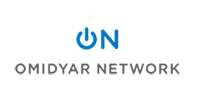
Omidyar Network:
a philanthropic investment firm that prioritizes sector-level impact, including investments in knowledge sharing infrastructure




